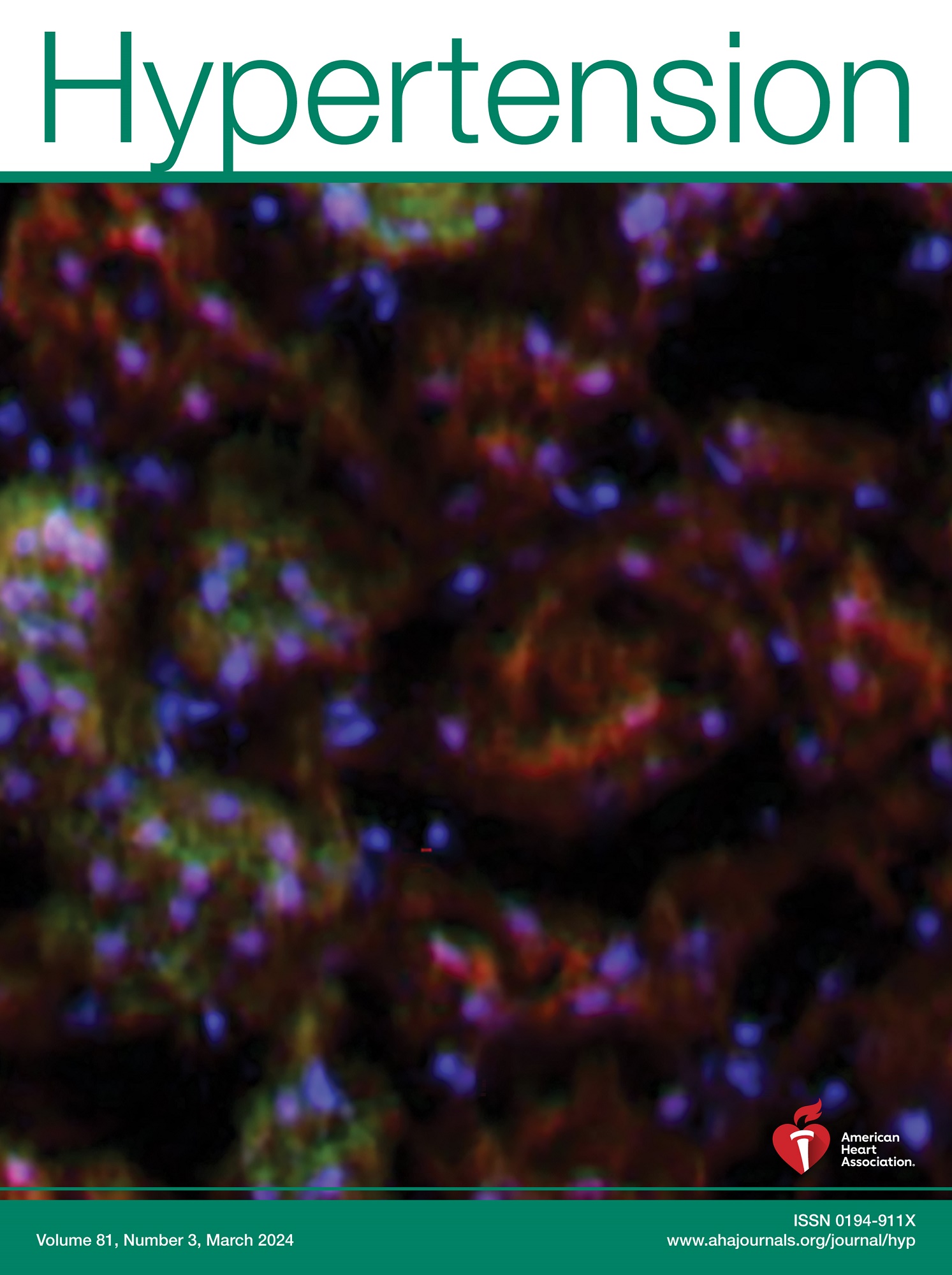高血压和肠道微生物群:美国心脏协会的科学建议。
IF 8.2
1区 医学
Q1 PERIPHERAL VASCULAR DISEASE
引用次数: 0
摘要
尽管高血压研究取得了实质性进展,但将这些研究转化为新的药物治疗方法仍然具有挑战性。对新疗法的需求是迫切的:15%至20%的高血压患者患有治疗难治性高血压,尽管积极的临床治疗包括≥3种药物类别,包括利尿剂,但这种情况仍然存在。许多临床前研究表明,肠道微生物组的改变会影响血压,这表明这一非传统的心血管危险因素起着重要作用。这种创新的关联为高血压提供了一种新的治疗机会:通过改变肠道微生物群来控制高血压。根据这一假设,临床试验已经启动,以检查是否可以通过针对肠道微生物组来控制高血压。这份美国心脏协会科学咨询旨在概述临床证据,提高卫生保健界对高血压患者肠道微生物组重要性的认识,更新现有知识,确定研究空白,并最终促进将研究结果快速转化为临床试验和实践。本文章由计算机程序翻译,如有差异,请以英文原文为准。
Hypertension and the Gut Microbiome: A Science Advisory From the American Heart Association.
Although substantial advancements have been made in hypertension research, translation of this research into new pharmacotherapies remains challenging. The need for new therapies is imperative: 15% to 20% of patients with hypertension have treatment-resistant hypertension, which often persists despite aggressive clinical treatments consisting of ≥3 medication classes, including a diuretic. Numerous preclinical studies have demonstrated that alterations in the gut microbiome affect blood pressure, suggesting an important role for this nonconventional cardiovascular risk factor. This innovative association suggests a novel therapeutic opportunity for hypertension: modifying the gut microbiome to control hypertension. In line with this hypothesis, clinical trials have been launched to examine whether hypertension can be managed by targeting the gut microbiome. This American Heart Association Science Advisory aims to outline clinical evidence, raise awareness among the health care community about the importance of the gut microbiome in patients with hypertension, update existing knowledge, identify research gaps, and ultimately facilitate the rapid translation of findings into clinical trials and practice.
求助全文
通过发布文献求助,成功后即可免费获取论文全文。
去求助
来源期刊

Hypertension
医学-外周血管病
CiteScore
15.90
自引率
4.80%
发文量
1006
审稿时长
1 months
期刊介绍:
Hypertension presents top-tier articles on high blood pressure in each monthly release. These articles delve into basic science, clinical treatment, and prevention of hypertension and associated cardiovascular, metabolic, and renal conditions. Renowned for their lasting significance, these papers contribute to advancing our understanding and management of hypertension-related issues.
 求助内容:
求助内容: 应助结果提醒方式:
应助结果提醒方式:


